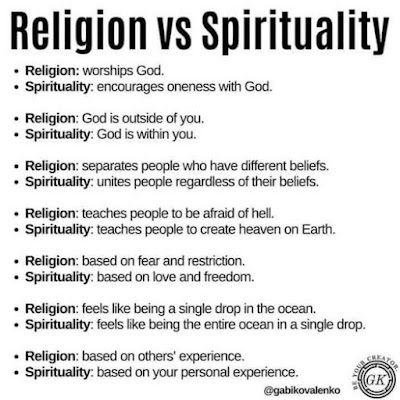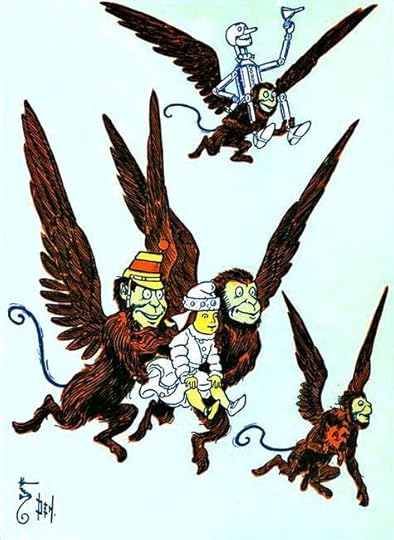Stephen Roney's Blog, page 35
June 18, 2024
Canadian Content

The people of Europe are now rising up against mass immigration, primarily because they see it overwhelming their own cultures.
There is as yet no similar resistance in Canada, even though our immigration levels are higher.
This is because the average Canadian is under the tragic misapprehension that he has no culture to protect.
And this is a spectacular failure of our governments and our education system. It is their job to promote distinct Canadian culture, as a matter of both national unity and of quality of life. For centuries, they have been doing the opposite, and flooding out our culture with “multiculturalism” is just the final stage.
Justin Trudeau has publicly announced, “there is no Canadian mainstream.” Once a colony, always a colony. Canadians are conditioned to imagine that culture is always something that must be imported. We are here to hew wood and draw water.
When I was going through school, I chafed that almost everything we read in literature was written in the UK; an English major did not include a single course in Canadian literature. It felt almost subversive to be keeping tabs on Canadian literature in my free time. Now, seamlessly, the Britlit has been replaced with aboriginal literature, alienated immigrant literature, post-colonial literature from the Third World, anything but Canadian literature, on the transparently false premise that these, and not the Canadian voice, are the voices previously unheard in Canada and suppressed.
Canada actually has an impressive and productive artistic culture, and everyone knows it except Canadians. When Alice Munro won the Nobel Prize for literature, the reaction from the average Canadian was probably, “Who is Alice Munro?”
This is criminal malpractice by our governments and our educational systems. It is as though they have deliberately set out to destroy Canada.
Canada has no mainstream?
We have Anne of Green Gables, which is as fine a piece of writing as has ever been done anywhere. It is the founding document for a proud Canadian tradition of children’s literature and children’s culture. This needs to be celebrated, as Denmark celebrates Hans Christian Andersen.
We have Robert W. Service, who is the most successful poet in the English language. We are especially powerful in poetry, with Leonard Cohen, Margaret Atwood, Irving Layton, Al Purdy. Related to this, we have a special strength in lyrical songwriting, which made Canadians especially prominent in the 60s folk revival: Cohen, Joni Mitchell, Ian Tyson, Stan Rogers, Stompin’ Tom Connors, Gordon Lightfoot, Neil Young, Buffy Sainte-Marie, Robbie Robertson. We were and are the best.
We have a rich and beautiful tradition of humour, and of the sympathetic portrayal of small town life. We have Stephen Leacock, especially Sunshine Sketches. We have Thomas Chandler Haliburton. And that tradition stretches on through W.O. Mitchell, Wayne and Schuster, to Norm MacDonald, Corner Gas, and Schitt’s Creek.
We have great visual art. Everybody knows about Krieghoff, the Group of Seven and Emily Carr; maybe Paul Kane. But they are not the best. They seem more like tokens, cliches: “look, they painted Canadian landscapes.” Big deal. Tom Thompson was the man. And we should be celebrating William Kurelek, Douglas Coupland, and Alex Colville; painters who painted Canadians and Canadian life, not just postcards of the place. And when we speak of Canadian art, we must cite Yousef Karsh, the greatest portrait photographer ever. And we have great architects: Safdie, Gehry, Erickson, I guess I must also mention Cardinal, although I find his work appalling.
We are great at design; the Canadian flag is the best in the world, and that reflects a wider tradition of Canadian heraldry. In Sofia, Bulgaria, I was shown with immense pride a block of buildings they believed was the pinnacle of architectural style. These were buildings that would not have stood out in Montreal or Quebec City.
And, yeah, there’s hockey, a Canadian sport that has become a world sport. There are not many countries that have that level of cultural prestige, that their pastimes become international. As well as hockey, we have given the world the canoe, the kayak, the snow shoe.
And we have great culinary traditions: poutine, of course; it really is available now all over the world. Our tradition of cheddar cheese used to be the world’s best, not to mention Oka and other regional cheeses, until it was destroyed by the government’s cartel system, which shut it out from world markets. We developed the McIntosh apple. We developed the Montreal bagel and Montreal smoked meat. We decided to put pineapple on pizza, but anyone is entitled to at least one mistake. Canadian rye whisky is world-renowned. We gave the world maple syrup!
And all this despite our government and our schools working against us. Despite the mobs tearing down our statues and our monuments and denigrating our founders. It is worth preserving. It is worth rising up for.
This is not to say we should be against immigrants. Many of the greatest aspects of Canadian culture have been produced by first or second-generation immigrants. The best culture comes from the mix of cultures. But it must be a melting pot; the idea must be that we are making something new and distinctly Canadian here, and we are all in this together.
Multiculturalism is colonialism. Multiculturalism is the enemy.
'Od's Blog: Catholic comments on the passing parade.
June 17, 2024
As Others See Us
Why Did the Killing Fields Happen?

Friend Xerxes has rfecently returned from a trip to Cambodia, in which he visited the “Killing Fields.” He expresses deep puzzlement over how such brutality could have happened. He notes that the executioners were mostly young men, and credits it all to male aggression. Then he shifts to portraying the Khmer Rouge as “ultra-nationalists,” and draws parallels to Trump.
He oddly—or perhaps predictably—does not mention the name “Khmer Rouge.” That “rouge” is the elephant in the room that he is determined not to see. That isn’t garden-variety nationalism.
As for the executioners generally being young males, that can most easily be accounted for by the fact that the task of killing without guns required hard manual labour and physical strength. It follows that the executioners would be young men. Their own individual motivations were pretty much beside the point in any case: what motivated those giving the orders?
The Khmer Rouge were in practice nationalistic. But so was the Lon Nol regime they overthrew: nationalism cannot have been the essential ingredient in their secret sauce nor in their rise to power. They were Marxists, communists, Rouge, and their official ideology was actually, in contrast to the regime they replaced, internationalist.
The clue to what caused the mass killings was that, when they came to power, they declared it to be “year zero.” They were a millenarian movement. Millenarianism (Wikipedia): “the belief by a religious, social, or political group or movement in a coming fundamental transformation of society, after which ‘all things will be changed.’"
This is the heart of Marxism. True communism will be a time of total equality and plenty, and nobody will need to work or do anything they do not want to do. There will be no government, for the lion will lie down with the lamb. One can achieve heaven on earth by political action. But in order to do this, obviously, all evil on earth must be tracked down and completely eliminated. So the mass killings begin.
This is what motivated the leaders of the Khmer Rouge, and no doubt most of their acolytes: the dream that they were achieving paradise. Here, now, imminently.
To do so, of course, everything about the current social, political, economic systems must be smashed; they are tainted with evil. They brought evil into the world. “All things will be changed.” Nobody must read. Statues and monuments must be pulled down. Money must be abolished; religion must be abolished; the family must be abolished. Any might reintroduce bad influences.
Xenophobia, let alone nationalism, was therefore not the main impetus. The problem was that the outside world was, as yet, beyond Khmer Rouge government control, and so a source of possible bad influences.
So too Maoist China, or Stalinist Russia, or Kim’s North Korea, or Castro’s Cuba. In principle, these too were internationalist movements. But they had to draw an iron curtain around the territory they controlled to prevent evil influences. As with Cambodia, in China, Mao actually overthrew and supplanted the Nationalists.
Millenarianism in politics always leads to holocaust. Nazism was another millenarian movement. It was committed to creating the new race, the “superman,” and a “thousand-year reich.” This too would be a paradise on earth—for this new species. They too had to exclude and eliminate polluting elements. The French Revolution went down the same path, under the Jacobins. They too declared a year zero, a new age of reason. This led inevitably to fear and suppression of all dissent, of foreign influences, and to mass executions.
In all these cases, the longer term agenda was not nationalism, but world conquest by their millenarian ideology.
This includes the Khmer Rouge. They actually started the war with Vietnam that ended in their downfall.
It is not Trump, nor the rising Euro-nationalists, but the modern “woke” left and the Eurocrats, that resemble the Khmer Rouge.
'Od's Blog: Catholic comments on the passing parade.
June 16, 2024
Religion vs. Spirituality

These days, many people claim to be “spiritual but not religious.” What do they mean by that? It is an inherently vague claim, as though they are hiding something. However, this list of distinctions recently popped up in my Facebook feed:
Religion vs Spirituality
• Religion: worships God. • Spirituality: encourages oneness with God.
• Religion: God is outside of you. • Spirituality: God is within you.
• Religion: separates people who have different beliefs. • Spirituality: unites people regardless of their beliefs.
• Religion: teaches people to be afraid of hell. • Spirituality: teaches people to create heaven on Earth.
• Religion: based on fear and restriction. • Spirituality: based on love and freedom.
• Religion: feels like being a single drop in the ocean. • Spirituality: feels like being the entire ocean in a single drop.
• Religion: based on others' experience. • Spirituality: based on your personal experience.
This makes clear how sinister “spirituality” is.
Taking the points in turn:
“Oneness with God” can mean either of two things: dissolving selfhood in the divine oneness, as Buddhists hope to do; or deciding one is God. A later item on this list makes clear which is meant here: the Buddhist concept is of being a single drop lost in the ocean. The “spirituality” concept is that you are the ocean. This is the sin of hubris, which we sometimes today less properly call narcissism. “I am the entire ocean of being. No one else exists.”
Hubris leads to bad things.
The second point in our list is about the same. Christianity stresses that God is present within your soul or consciousness: Jesus knocks at the door of your heart. “The kingdom of heaven is within.” The distinction must be that to the spiritual, God is encompassed by your ego and your will, “within” in this more complete sense. God is you.
The third point is correct that religion “separates people who have different beliefs.” It unites people around common beliefs; but necessarily, so long as there is not one world religion, it excludes from this unity others who do not share those beliefs, to the extent that they do not. But spirituality not more unifying. It is everyone having their own unique beliefs. It is all alienation, lacking any unifying function. What happens when two people both believe they are God, and disagree? One must eliminate the other.
The fourth point claims that religion ‘teaches people to be afraid of hell.” According to religion, this is conceptually false. Everyone has a conscience; which is to say, everyone fears hell. Religion does not instill that. Every culture assumes the cosmos is ultimately just, and there is payback for immoral actions. The eastern faiths speak of karma; the pagan Greeks said even the gods are subject to Dike, cosmic justice, and the Erinyes will pursue an evildoer. Hell is universal, and pre-exists religion.
Religion emerges to offer escape from it.
To blame religion for hell is like blaming your doctor for illness, and supposing you can avoid it by not seeing him.
Spirituality, point four goes on to say, seeks to “create heaven on earth.” Trying to do this has led historically to unimaginable atrocities. This is the Holodimir; this is the Great Leap Forward; this is the Nazi quest for the superman; this is the Killing Fields. In Biblical terms, this is the Tower of Babel and this is the antichrist.
It sounds like a worthy goal. Why does it always go wrong?
Karl Marx’s favourite aphorism, according to intimates, was Mephistopheles’s line from Faust: “everything that exists deserves to be destroyed.” This is where millenarianism seems to lead. One looks at what exists, sees its imperfections, sees it does not fulfill one’s deepest desires, and so one must destroy it.
Point five: it is not entirely false to say that religion is based on “fear and restrictions.” The fear of God is the beginning of wisdom, the Bible says, and the word “religion” means restriction, “binding.” Admitting that God exists and is not us indeed imposes obligations: to seek and honour truth, to treat others with respect, to be humble and to admit our own limitations. Religions also generally impose ritual obligations. Where’s the fun in that?
The “freedom” spirituality offers is freedom from this: freedom from the need to honour truth, to treat others with respect, or to admit our limitations. Which is to say, it offers narcissism.
This is not real freedom. One quickly becomes a slave to one’s desires, all of which are incipent addictions. More alcohol, each time less satisfying. More sex, each time less satisfying. More power, each time less satisfying. True freedom is the freedom to follow one’s conscience. This is what religion offers.
To say spirituality is based on love is a lie. “I am the ocean; nobody else exists” is the opposite of love. Christianity, on the other hand, is explicitly based on love, and on the proposition that “God is love.”
Love is not a transitory feeling, and not sex. Love is not what one feels towards a well-cooked piece of meat. True love is seeking the best for the other, which means a set of obligations towards the other. “If you love me, keep my commandments.” This is what spirituality rejects.
I am not sure what to make of the final claim, that religion is based on others’ experience. This denies the central tenet of Judaism, Christianity, and devotional Hinduism that we must each have a personal relationship with God. And it denies the central tenet of Buddhism, that theory is irrelevant, it is all about the personal experience of enlightenment. So what is meant here?
That religion builds on the experience of others. It offers tested techniques for achieving and sustaining that personal experience of the sacred, spiritual world. To reject that is equivalent to rejecting science or education, in favour of working it all out for yourself. What is the benefit?
Unless, of course, you are God. And can simply decree reality to be whatever you want. Gravity exists only at your sufferance.
My advice: if anyone tells you they are “spiritual, but not religious,” back away slowly, and stay away.
'Od's Blog: Catholic comments on the passing parade.
June 15, 2024
The Pride Flag

It is “pride month.” Within a block of my house, two versions of the pride flag are flying from private flagpoles.
A friend of mine, himself in a stable homosexual relationship, is alarmed by this trend. It reminds him of the distinctive Nazi flag appearing in Weimar Germany. Like the Nazi flag, it expresses aggressive commitment to an all-embracing ideology.
And, I would add, that ideology, “wokism,” or “postmodernism,” or “intersectionality,” or whatever new name it hides under, is philosophically the same as Nazism in all particulars.
'Od's Blog: Catholic comments on the passing parade.
June 14, 2024
Sagan's Standard

Atheists and materialists love to cite Sagan's standard: “Extraordinary claims require extraordinary evidence.” I think the concept ultimately comes from David Hume.
It is simply an admission of confirmation bias. You resist anything that differs from your existing beliefs. For what else makes a claim “extraordinary”?
Or else it is an expression of the ad populum fallacy; if by “extraordinary” is meant an assertion not often made. Truth is not determined by vote.
It is the evidence itself that determines whether a claim is “extraordinary.” The same standard of evidence applies to all assertions.
'Od's Blog: Catholic comments on the passing parade.
June 13, 2024
Angry Pierre
Andrew Lawton has just published a bio of Pierre Poilievre. Discussing it, he and Brian Lilley puzzled over the common claim by Trudeau and the Liberals, and by some commentators, that Poilievre is angry and mean. Even that this makes him ultimately unelectable. They feel the opposite. They find him friendly and cheerful.
So do I. And not just his supposed private persona. His public persona. It is striking to me that Poilievre never shows anger, never loses his cool when attacked, however outrageously. He always responds with a smile, and, as often as not, with a joke. The self-control is astounding.
Trudeau, by contrast, always seems angry. He mocks up anger even when I suspect he does not feel it. He calls opponents Nazis, “unacceptable,” foreign agents, and on and on.
How to account for this odd inversion of what seem to be plain, visible facts?
I think Harry Tuman said it best.
When he was giving a speech, some listener shouted at him, “Give ‘em hell, Harry.”
And Truman responded, “I never give them hell. I just tell the truth, and to them it sounds like hell.”
Poilievre is an extremely good communicator. By simply clearly stating the matter, and asking precise questions, he makes the other side look bad. It feels like hell to them. A narcissist will never blame themselves for an error or misdeed: instead, they blame the person who points it out. You blame the police; you blame the judge; you blame the jury; you blame the church; you blame conventional morality; you blame society as a whole.
It’s a childish response, but common. Especially, these days, on the left.
For Poilievre, it is a Catch-22; he is obliged to pretend to be wrong.
Roughly the same narcissistic impulse perhaps accounts for much Trump Derangement Syndrome.
Trump too is a great communicator. That sounds like hell to the other side.
Trump is not usually blamed, like Poilievre, for seeming angry. That is because he really does indulge in anger at times. Trump does, unlike Poilievre, trade in insults and make extreme charges against his opponents. He can be brutal to an opponent. Therefore, they do not accuse him of anger.
But he does speak truth; he is always saying out loud what everyone is thinking. This is what the left fears about him; and so they accuse him of lying.
Poilievre’s words are more calculated than Trump’s, more like those of a conventional politician. He hedges and dodges: will not take a stand on the proposed new capital gains tax, because there is no political gain in it, and so forth. He speaks the truth, but more selectively. But unlike Trump, he does not show anger; is always gentlemanly about it. And so they accuse him not of lying or prevaricating, but of always being angry.
This is how gaslighting works.
Whatever the narcissist says will be the opposite of the truth.
One reason they do this is because they fear truth, and want to get as far away from it as possible. Another reason is that they recognize good traits in others, and immediately envy them. They must appropriate them to themselves instead, and insist they are not found in the other.
The takeaway is that we are currently governed by petulant children with weapons.
'Od's Blog: Catholic comments on the passing parade.
June 12, 2024
Why Canada Is So Woke

Canada has a reputation as the wokest country in the Anglosphere; perhaps in the developed world. What is it about Canada that makes it so susceptible to this?
I say it is the legendary Canadian “niceness,” the love of social harmony. “Peace, order, and good government.” This, I think, traces back to the UE Loyalists: English Canada was founded on the fundamental principle of deference to authority. This means not just government authority—and Canada is surely the only country in the world where the police force is such a beloved national symbol—but also social authority generally, the dictates of good manners and polite discourse.
This means that Canadians are peculiarly vulnerable to being bullied. Anyone who shouts loudly will have their demands met, for the sake of social peace, and anyone who speaks as an authority will be accepted as such.
This is what the modern woke left really is: a selection of bullies making demands. A set of special interest groups, overall a minority. Like any bully, they will not desist until and unless firmly challenged; their demands will only grow and grow. And against this trend, Canada is uniquely defenseless.
Women are a similar case. Feminism was the vanguard of the woke trend; women continue to be more “woke” then men. Yet women are the chief victims of wokery. Feminism, in rejecting the traditional feminine role, subverted all their interests. This was more obvious in the early days, when “consciousness-raising sessions” were the main feminist activity. Women had to be bullied or socially shamed into the new doctrine. But now studies show that women are less happy than they were pre-1960, and women in developed nations are less happy than those in the Third Word, where traditional roles are still more common. And they are losing their advantage in life expectancy over men.
This has happened because women are like Canadians. Women are naturally inclined—naturally inclined, note—to be nice, to defer to authority, to be flexible and go along. This, like Canadian niceness, is usually an admirable trait, but leaves one vulnerable to bullying and abuse.
And the bully’s demands grow and grow. Now being nice requires accepting men in women’s washrooms, rapists in women’s prisons, men taking the trophies in women’s sports.
This also perhaps explains the commonly noted phenomenon of “flying monkeys”: how bullies and narcissists always find willing accomplices. “We are three times the slaves of the owner of the Golden Cap, whosoever he may be.”
How far can it all go before the enslaved monkeys rebel? Perhaps we are about to see.
'Od's Blog: Catholic comments on the passing parade.
June 10, 2024
Jesus Speaks on Family Values

Then Jesus entered a house, and again a crowd gathered, so that he and his disciples were not even able to eat. 21 When his family heard about this, they went to take charge of him, for they said, “He is out of his mind.”
22 And the teachers of the law who came down from Jerusalem said, “He is possessed by Beelzebul! By the prince of demons he is driving out demons.”
23 So Jesus called them over to him and began to speak to them in parables: “How can Satan drive out Satan? 24 If a kingdom is divided against itself, that kingdom cannot stand. 25 If a house is divided against itself, that house cannot stand. 26 And if Satan opposes himself and is divided, he cannot stand; his end has come. 27 In fact, no one can enter a strong man’s house without first tying him up. Then he can plunder the strong man’s house. 28 Truly I tell you, people can be forgiven all their sins and every slander they utter, 29 but whoever blasphemes against the Holy Spirit will never be forgiven; they are guilty of an eternal sin.”
30 He said this because they were saying, “He has an impure spirit.”
31 Then Jesus’ mother and brothers arrived. Standing outside, they sent someone in to call him. 32 A crowd was sitting around him, and they told him, “Your mother and brothers are outside looking for you.”
33 “Who are my mother and my brothers?” he asked.
34 Then he looked at those seated in a circle around him and said, “Here are my mother and my brothers! 35 Whoever does God’s will is my brother and sister and mother.”
There is a great deal to consider in this short passage, Sunday's gospel reading, For now, notice that it is framed as a conflict between Jesus and his family. Is the Bible warning us to beware of “family values”?
His family, it begins, went out to seize him; on the grounds that he was “out of his mind” or had an “impure spirit.” That he was insane, we would say today. “Insane” literally means “unclean,” “impure.”
“If a house is divided against itself, that house cannot stand,” Jesus observes. By “house” he clearly means family: it is hard to see how the physical structure of a building can be “divided against itself.” And Jesus’s own family, at this moment, is divided against him. He is saying that a divided, dysfunctional family must be shunned.
“And if Satan opposes himself and is divided, he cannot stand.” In other words, when there is a divided family, or a divided nation, Satan cannot be on both sides. Whenever there is strife, one side is righteous, and the other side is wrong. There is no moral ground for pacifism or for being an innocent bystander.
“no one can enter a strong man’s house without first tying him up. Then he can plunder the strong man’s house.”
This looks at first like a non sequitor. What does the question of whether he is mad have to do with binding strong men and stealing from them? Why do “strong men” even come up?
The answer is obvious: his family is trying to seize him, to bind him, as we do with those we declare insane, either literally or, currently, through the use of chemicals. He is saying this is to steal from him. We must question: how often is this true of diagnoses of madness, of mental illness, generally? Are they attempts to steal? Is mental illness really a case of families trying to steal from a particularly strong child or sibling?
Freud himself, after all, observed that “the neurosis rides the strongest horse in the stable.”
Next, what is the unforgivable sin, blasphemy against the Holy Spirit? It is, here, calling someone mad who is not mad, but inspired. Understand that “mad” and “possessed by a demon” meant the same thing in Jesus’s day. It still does, really: “obsession” has this meaning.
I think we can abstract further: the unforgivable sin is when one recognizes the truth, or the right, and deliberately denies it. When one tries to convince a victim that they are insane or immoral for cleaving to it: gaslighting. When one tries to convince the rest of the world that someone is mad or bad for speaking the truth or doing the good: things like antisemitism; perhaps much of the edifice of “mental illness.” This is unforgivable because it is a conscious and deliberate turning against God, who is in his being truth and goodness. These are the Logos.
Jesus concludes by explicitly denying his family. Our true family is those who seek the truth and do the right; in this family of the church we are all brothers.
This all raises an awkward theological point. It would seem that, far from being without sin, as Catholicism teaches, Mary here is guilty of the one unforgivable sin.
But it can be reconciled by referring to St. Paul: that the essence of morality for women is to obey their husbands. It is Jesus’s mother and brothers who come—Mary may simply be acquiescing to the will and judgment of her male relatives. Which is what "brothers" meant in ancient Aramaic. Just as she acquiesces in her essential moral act: “let it be done to me according to your word.” This is perhaps why the Bible cites the presence of male relatives; Joseph having died by this time.
Feminists won’t like the message; but it is consistent. Morality for women consists not in judgment, but acquiescence,
There are indeed many messages here. But one important one is to beware of family values. Family values are not Christianity. They are a hijacking of Christianity, comparable to nationalism or racism. And as dangerous.
Getting Old
So we do not lose heart. Though our outer nature is wastingaway, our inner nature is being renewed every day. For this slight momentaryaffliction is preparing for us an eternal weight of glory beyond allcomparison, because we look not to the things that are seen but to the thingsthat are unseen; for the things that are seen are transient, but the thingsthat are unseen are eternal. For we know that if the earthly tent we live in isdestroyed, we have a building from God, a house not made with hands, eternal inthe heavens. – 2 Corinthians
This second reading at yesterday’s mass is an encouragingone for those of us getting on in years.
'Od's Blog: Catholic comments on the passing parade.



